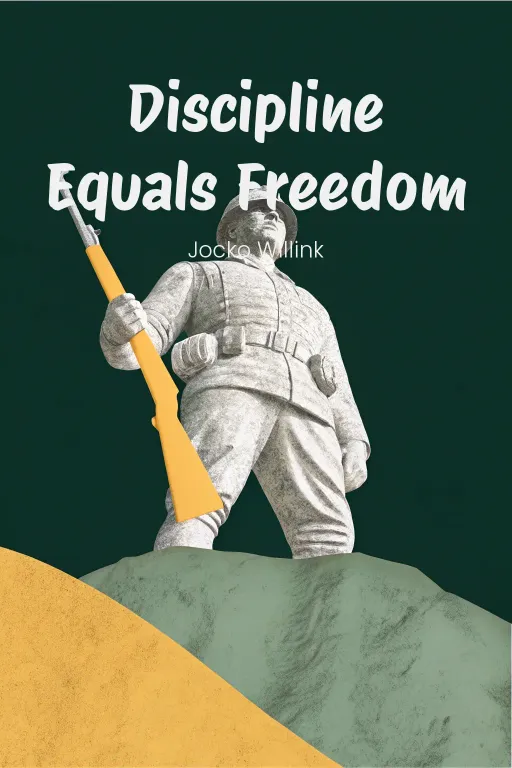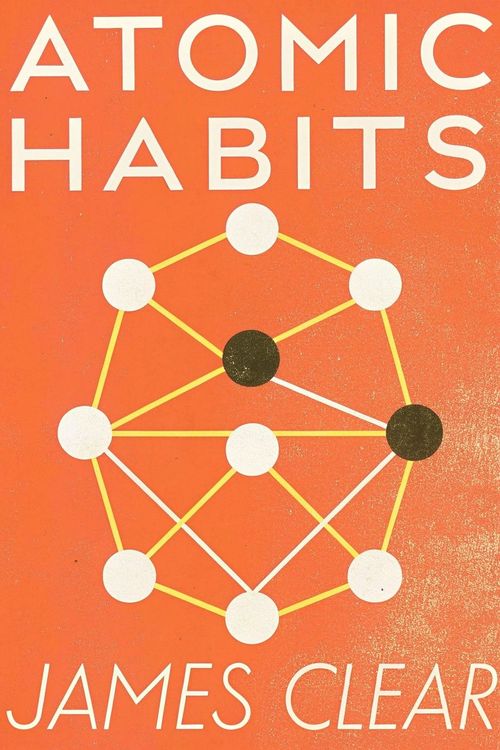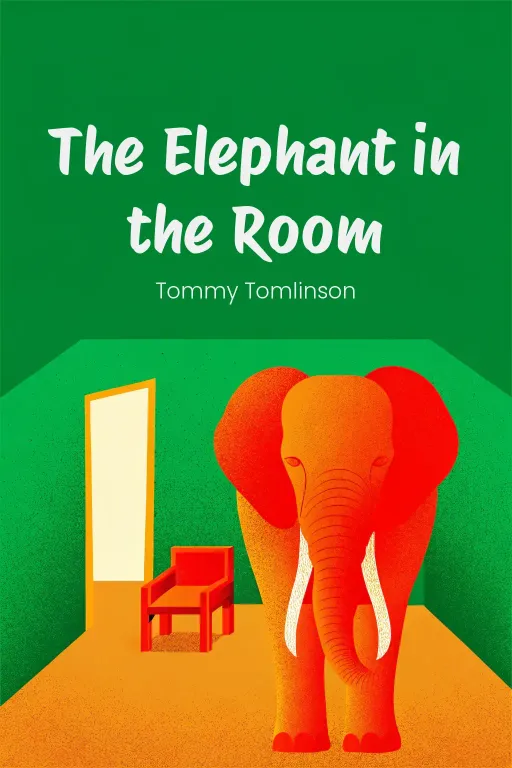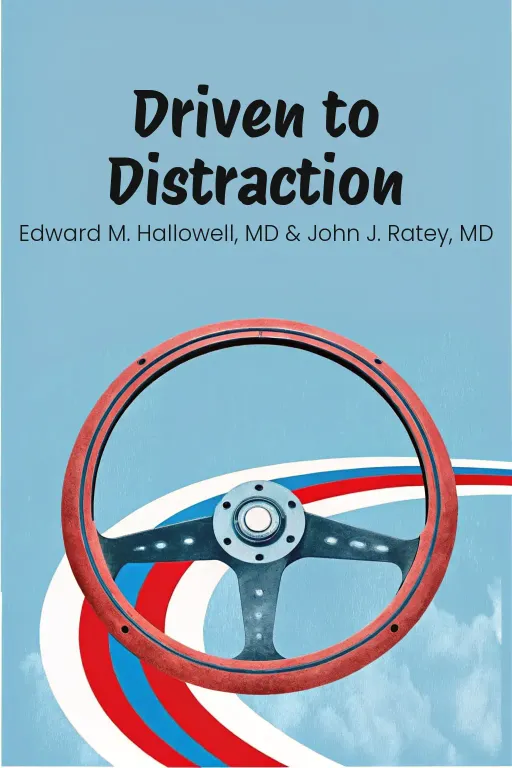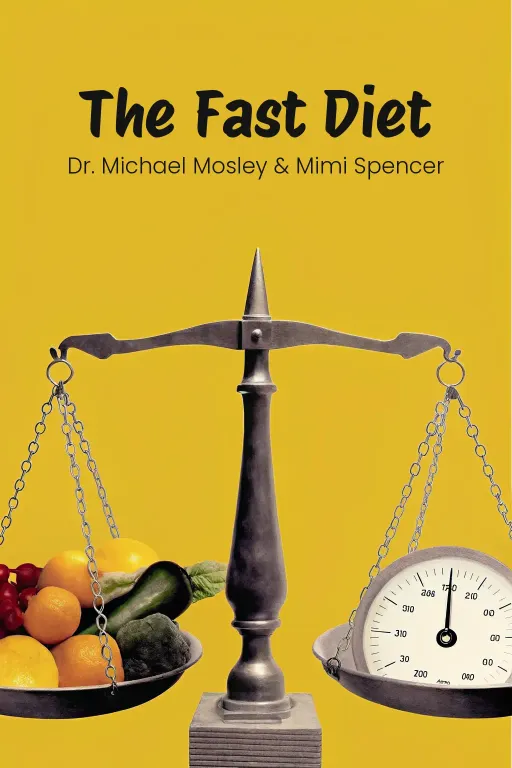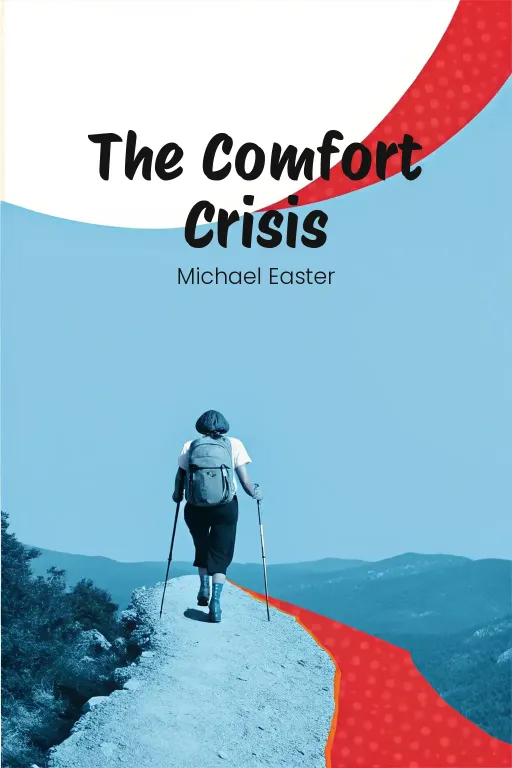
Discipline: Your Key to Real Freedom
Podcast by Beta You with Alex and Michelle
Field Manual
Discipline: Your Key to Real Freedom
Part 1
Alex: Hey everyone, welcome back! Today, we're tackling something that might sound a little backwards at first: the idea that discipline, not motivation, is actually the key to unlocking true freedom. Michelle: Discipline equals freedom? It's a catchy phrase, sure, but is it just motivational poster fluff, or is there more to it? Alex: Exactly! And that's “really” the core of Jocko Willink's book, "Discipline Equals Freedom: Field Manual". Willink, a former Navy SEAL, lays out a “really” practical approach to life, one built on self-discipline, resilience, and consistent action. He argues that freedom isn't about just doing whatever you feel like, whenever you feel like it. It's about having the strength of character to make the right choices, regardless of the situation. Michelle: So, essentially, no quick fixes, no more excuses, and definitely no waiting around for inspiration to magically appear. Sounds intense! Alex: Intense, yes, but also incredibly practical. The book itself is a combination of military wisdom, strategies for mental toughness, and even fitness routines, all working together to create a mindset geared for constant personal growth. And today we’re tackling three major aspects of Willink’s philosophy. Michelle: Okay, I'm ready. What are we diving into first? Alex: First, we're looking at The Foundation of Discipline. Willink is crystal clear that discipline isn’t just some nice-to-have virtue. It’s absolutely essential if you want to achieve freedom. We'll break down why hard work consistently beats trying to find an easy way out. Michelle: Ah, so this is the part where he confirms that my habit of putting things off until the last minute is actually hurting me. Got it. Alex: Next, we'll explore Mental Resilience. For Willink, stress isn't something to avoid. It's actually an opportunity for growth, a chance to strengthen your resolve. Think of it as learning to handle pressure without cracking. Michelle: So, transform stress into a strength-building exercise? I guess I've been accidentally training for this with every tax deadline. Alex: Finally, we'll discuss Physical Training. Willink sees your body as more than just something to carry your brain around. It's a testing ground where you prove your commitment to growth. Putting in the physical effort isn't optional. Michelle: Fantastic. So now I'm feeling mentally and physically challenged. But if I follow, it's about building discipline step by step, forging resilience like armor, and using physical effort to build a foundation for… what exactly? Success? Alex: Exactly! So with that, let's jump onto the path where freedom is earned through embracing discipline.
The Foundation of Discipline
Part 2
Alex: Okay, Michelle, let's dive right into the first core idea: The Foundation of Discipline. Willink doesn't hold back, does he? He just torches the whole idea of shortcuts, straight up calling them a “lie”. Michelle: A lie? Seriously? So all those articles about "Crush Your Goals in 5 Easy Steps" were total garbage? Alex: Basically! Willink's take is pretty blunt, but it's refreshing. He thinks shortcuts promise efficiency, but what you usually get is frustration and just… okay results. Real progress, the kind that actually sticks, comes from doing the hard work. Think about it – whether it's your career, learning a new skill, or even getting healthier, there's just no substitute for consistent effort. Michelle: Right, so instead of some magic bullet, he's selling us… late nights, early mornings, and—let me guess—enough sweat to power a small city? Alex: You got the picture! And he doubles down on that image, really drilling the point home. Discipline means getting comfortable being uncomfortable. Preparing like crazy for something big at work, or pushing through when you “really” don't feel like going to the gym. It's about showing up, even—especially—when it's a pain. Michelle: Yeah, I can't argue with that. But, Alex, it sounds kinda… intense. I mean, most of us aren't prepping for a war zone or trying to get ripped by summer, you know? So how does this apply to normal people? Alex: That's a really good point! That’s where Willink's framework gets interesting because even though his examples are pretty hardcore, the same rules apply to everyday stuff. Like procrastination, for example. Willink would say every time you hesitate or doubt yourself, that's a chance to choose action. Even something super small, like making your bed or not hitting snooze, can be a win for discipline. Michelle: I see. So it's not about doing something huge, it's more about the act of making the commitment itself? Alex: Exactly! Those small, consistent habits work like compound interest – they build up your mental strength over time. You make one disciplined choice, and it starts to affect other areas of your life. Remember his saying, "Discipline equals freedom"? That's key. You build discipline little by little, through small, deliberate actions. Michelle: Okay, I'm with you. Discipline starts small, and each step leads to bigger changes. But what happens when life throws you a curveball? You know, missed deadlines, family emergencies… the whole deal. Alex: Ah, that leads into something Willink focuses on a lot: responsibility. He pretty much sees discipline and responsibility as two sides of the same coin. It's not about waiting for things to be perfect before you act because that's never going to happen. Discipline means stepping up regardless of the chaos, the distractions, or the excuses. It's about owning your choices and actions – no blaming bad luck or whatever. Michelle: So I can't blame Mercury being in retrograde anymore? Alex: Nope, not according to Willink. He sees excuses as a way of sabotaging yourself. And it's interesting how he connects responsibility to, like, being human in general. He tells this story about getting his team ready for combat, and it wasn't just about him being ready. Every decision he made impacted his teammates, their lives. So discipline, in that case, was really about taking responsibility seriously. Michelle: Right, so it's like carrying the weight of your actions, knowing they affect other people. But that makes me think about what you said earlier about everyday battles. How does someone apply that level of responsibility to, say, a boring office job or raising kids? Alex: Another great point. Willink would probably say it's really the same principle, just in a different context. Maybe it's being reliable for your team at work, or teaching your kids the right way to act. It all comes back to showing up, fully, for whatever role you've taken on. The stakes might be different, but the method isn't: disciplined effort, consistent action, and not letting yourself off the hook. Michelle: Okay, alright, you've convinced me discipline is seriously important. But let's get back to something a bit more… practical. How does he suggest someone actually builds this mental fortress of discipline, step by step? Alex: I'm glad you asked! Because this part is actually pretty simple, even if it's not easy. Willink thinks you should treat discipline like a muscle – you have to train it with repetition. That means building disciplined habits into your daily life. He always talks about setting an alarm and actually getting up when it goes off. No snooze button, no negotiating. Michelle: Ah, the classic alarm clock drill. It’s “really” simple but makes a big statement, right? What's next? Alex: After that, it's about adding more disciplined habits little by little: planning your day the night before, developing a workout routine, even cleaning up your diet. Each small win builds on the last. It's less about making huge changes all at once and more about being consistent over time. Michelle: So instead of trying to reinvent yourself on January 1st, you're just laying one brick at a time. Got it. Alex: Exactly! Each brick, no matter how small, helps build that foundation of discipline. And over time, that foundation gives you freedom—freedom to make choices that are in line with what you “really” want, without getting thrown off course by procrastination or excuses. Michelle: You know, I was kind of dreading this whole "freedom through suffering" thing, but it's actually starting to make sense. Discipline isn't about making your life miserable, it's about putting in the work so your future self can actually live a good life. Alex: That's exactly what Willink wants us to see. Discipline, deep down, isn't restrictive—it's empowering. By taking control of what you can, even in small ways, you create a life that's not controlled by chaos or limitations. Michelle: Alright, Alex, point taken. Maybe I'll start by facing my snooze button habit tomorrow. Wish me luck? Alex: No luck needed, Michelle – just discipline! Remember: begin right here, right now.
Mental Resilience and Self-Mastery
Part 3
Alex: Exactly. So, all this talk about discipline being the fix for life's chaos naturally brings us to how mental resilience fits in, right? How discipline actually “creates” that mental toughness. Michelle, what do you think—are we basically saying, "Forget shortcuts, embrace the grind, even when it’s kicking your butt?” Michelle: Are we really going there? So, mental resilience and self-mastery... Alex, lay it on me. Alex: Well, think of it as building an internal structure strong enough to withstand external chaos. Willink believes resilience isn't something you're born with, but a skill you actively build through discipline. You learn to stand your ground and push forward, no matter what life throws at you. And this fight starts with procrastination, something we all struggle with! Michelle: Ah, procrastination—our good old frenemy. It's both an art and a twisted science, isn’t it? We spend hours avoiding, then dissecting why we avoid. So, how does Willink suggest we tackle that universal demon? Alex: He attacks the root cause head-on. Procrastination is really paralysis, right? Whether it's fear of failure, lack of motivation, just plain overthinking. Willink's key? Simple action. He calls it the "HERE and NOW" principle. Forget the big plan, forget the "what ifs," just do a small, immediate thing. Michelle: Hold on, HERE and NOW? So you're saying I should stop overthinking my 5-year plan, stop Googling productivity hacks, and just... pick up a pen? Move my chair? Alex: Yep, exactly! Willink compares it to standing on a cliff edge. You can freeze, picturing every disaster, or you can leap. Once you act, the fear fades, momentum builds, and off you go! The genius is in just starting. Psychology shows us, once you begin, you’re much more likely to finish. Michelle: Right, the Zeigarnik Effect—unfinished tasks nagging at your brain until you complete them. So, the real challenge isn't finishing something; it's making that initial step. Classic mind game. Alex: Exactly! So, he suggests micro-goals—small, achievable actions that don’t feel overwhelming. Draft one email instead of clearing your whole inbox. Take a walk instead of committing to a new fitness plan. These create momentum, and momentum does the rest. Michelle: Okay, say I’m cleaning my garage after months of avoiding it. I start with one corner, sorting screws or something. What happens next? Alex: That single action sets both your mind and body in motion. Your brain focuses on the immediate task, not the overall mess. By starting small, you’re flipping a switch, anchoring focus, and making progress nearly inevitable. Michelle: Like tripping over the first domino instead of trying to topple the entire set at once. But, doesn’t "just-do-it-now" disregard the need for any planning? How does he balance action with preparation? Alex: Good point. Willink doesn’t dismiss planning, he critiques overplanning. He’s wary of using preparation as an excuse for inaction. Planning has value, but if you're obsessing over perfect conditions, you're not moving. He’d say, get it wrong, correct it later, but don't freeze seeking perfection. Michelle: Right, he's saying, ‘The painting won’t paint itself; start throwing some color on the canvas and refine it later.’ So learning through action, not endless theory? Alex: Exactly! Like a painter's first chaotic strokes. Perfection isn’t the starting goal—progress is! The more you do, the clearer things become. That seeps into how we manage stress too. Michelle: Interesting. Let's switch gears. We've covered the tactical side of resilience—micro-goals and immediate action. So, what about managing our inner chaos when life's throwing punches? Alex: That’s where mastering your inner world is crucial. Willink says you can't always control external chaos—workload, disagreements, life events. But you can control your response. It's about detachment, removing emotional reactions, and acting with logic. Michelle: Easier said than done, right? Workplace tension, unexpected criticism, family drama—how do you shut out that noise? Alex: Willink suggests two strategies. First, mental filtering—treating input like a gatekeeper. Not every opinion or inconvenience deserves your energy. Decide what adds value, discard the rest. Is a response useful, or is it just noise? Michelle: “Negativity doesn’t get a vote"? Alex: Yes, and it’s empowering. How much stress comes from letting someone else’s mood shape your day? Reclaiming that mental space is HUGE. Michelle: Totally agree. And the second strategy? Alex: Emotional fortitude—building mental armor through purposeful self-talk. Recognize unhelpful emotions like self-doubt as what they are: temporary states, not truths. Condition your mind like you condition your body. Repetition builds resilience. Michelle: So, mental battlefield training: step back from the emotions, assess logically, move forward with control. Sounds exhausting, but in the long run, it is satisfying. Alex: It is. Resilience and self-mastery are like any skill—you strengthen them through intentional, consistent confrontation with the tough stuff. Michelle: And the reward? Empowerment? Alex: Exactly. Willink’s point is, with mental resilience, you're no longer a passive player. You have the clarity, discipline, and strength to make choices, turning setbacks into stepping stones. Michelle: Alex, I'm starting to see the light here. Procrastination weakens with action. Stress becomes training. Discipline morphs into empowerment. It's all clicking. Alex: Exactly! It's tough love, but deeply liberating.
Physical Training as a Metaphor for Growth
Part 4
Alex: Right, that mental toughness is the foundation we need when we face tough physical or emotional times. And that actually leads us nicely into our next point: physical training as a way to grow as a person. This is where you can really see discipline in action, and honestly, the lessons we learn go beyond just the gym. We'll start with the health benefits, then look at how being adaptable helps us bounce back, and finally, how pushing ourselves physically makes us stronger mentally too. Michelle: So, we’ve gone from taking charge of the inner battlefield—fighting procrastination, quieting the chaos—to now shaping the physical battlefield. Alex, tell me: do you think we often forget that our bodies are actually key in all this discipline stuff? Alex: Absolutely, and that's exactly what Willink is getting at. He sees the body as a testing ground for discipline. It's not just something we carry around; it's where discipline becomes really obvious. And it all starts with recognizing just how good physical activity is for us. Of course, we all know the basics – more stamina, more muscle—but the real magic is how it teaches you to be committed, build a routine, and stick with it. Michelle: Routine, huh? Let me guess: is this another one of those “five a.m., no excuses” wake-up calls? Alex: Pretty much! But it's not just about the time itself; it is about the ritual. Getting up early, when everyone else is asleep, gives you a mental advantage. It’s a very intentional choice, done when it’s not easy. And over time, it kind of represents how you approach discipline in general. Willink sees those early hours as a peaceful time, free from distractions, and full of possibilities. Michelle: A time when no one’s blowing up your inbox or fighting for your attention—I get that. But how does that actually play out in real life? How does waking up early affect you beyond the feeling of being a champion in the moment? Alex: Well, think of it like this: your day starts with a small victory. By just getting up and keeping a commitment to yourself, you've already fought the easy route. That one little thing strengthens your ability to choose discipline. And it sets the tone for the rest of the day. It's like that domino effect we talked about before – it builds from that first little win. Michelle: Alright, morning victories—and hopefully, training builds on these wins. So, what else? Tell me about this amazing link between physical training and mental toughness everyone's always talking about. Alex: It might sound cliché, but the science really backs it up. Training releases endorphins—those natural "feel-good" chemicals that boost your mood, reduce stress, and improve your emotional capacity. And that’s why fitness is connected to all aspects of our lives. Pushing yourself through physical discomfort makes you mentally stronger. It teaches you to deal with tough situations under pressure. Michelle: Lifting the weight—literally—so that metaphorical burdens seem lighter. I can see the logic. But what about when life throws a curveball? You know, injuries, or illness? Does he suggest pushing through the pain, or is that where adaptability comes in? Alex: Oh, adaptability is absolutely vital. Willink stresses a "do what you can" approach. The idea is to avoid falling into the all-or-nothing trap when you're dealing with an injury or illness. Instead of giving up altogether, you change your plan to stay active while being kind to your body. Michelle: Right, so no excuses. If I can't run, I lunge. If I can’t lift weights, I focus on flexibility or core strength. And if all else fails, maybe I just walk circles around the house. What's the main lesson here though? Alex: The key lesson is resilience. Life will always throw curveballs, it’s inevitable – but how you react determines whether you continue to grow or get stuck. The text mentions an athlete with wrist tendinitis. Instead of stopping, they focus on lower-body exercises and mental techniques, like meditation. And that adaptation doesn’t just keep them moving, it also makes them more well-rounded, building broader strength and versatility in the long term. Michelle: So, essentially, a setback isn't a defeat—it's more like a detour. And along the way, you actually become stronger and more resourceful. Got it. But what about those who feel stuck or bored—the classic sign of hitting a plateau? Does "just do it" still work when you’re not motivated anymore? Alex: This is where variety comes in. Willink advises mixing up your routines to avoid stagnation. By trying new things, you challenge your mind and body in different ways, keeping growth alive. It’s not about doing more, it’s about doing things differently. Michelle: Like adding some spice to your workout. Let's get specific—what does variety look like in his world? Alex: He loves dynamic movements, for example, like those you do with kettlebells. Unlike isolating exercises, kettlebell exercises use many muscle groups working together. They mimic real-life movements, building functional strength and also keeping your brain involved. Take a Turkish get-up, for example. It's part exercise, part choreography—and definitely not boring. Michelle: Right—so you’re not just bench-pressing for biceps; you’re teaching your body coordination, balance, and endurance all at once. Got any more ideas, other than kettlebells? Alex: Of course. Gymnastics-style workouts are another favorite. Think advanced bodyweight exercises such as muscle-ups or L-sits. These moves “really” need intense focus and control, demanding effort not just from your muscles but also from your mind. Mastering something complex like a muscle-up isn't just physical—it's emotionally rewarding. And it demonstrates that persistence pays off. Michelle: Okay, keep it interesting, keep it challenging, and push your limits. It sounds pretty simple but “really” profound. And it connects back to this idea – discipline in the gym mirrors discipline in life, right? Alex: Exactly. Your physical experiences mirror your mental and emotional state. You learn to handle discomfort, overcome obstacles, and take advantage of opportunities for growth, even when they’re tough. And these lessons translate to your career, relationships, and just about everything else. Michelle: Final question, Alex. If someone listening feels stuck or bored—or is facing their first physical or mental plateau—what should they do to reignite their progress? Alex: Start small, but be intentional. Commit to one new action tomorrow, whether it's waking up earlier, adding five minutes to your workout, or trying a mental challenge like meditation. At the beginning, progress isn’t always exciting, but all you need is one step to reignite the path forward. Michelle: So, whether it's a sweat session or a mental challenge, the message is the same: discipline starts in the body but resonates through every aspect of your life. I like it. Alright, Alex, I think we've won another battle.
Conclusion
Part 5
Alex: Okay, Michelle, let’s wrap things up. Today, we really unpacked Jocko Willink’s idea that discipline is the bedrock of true freedom. We talked about how building discipline, bit by bit, is way more effective than taking shortcuts, and how it really sets you up for a resilient life where you actually “do” things. Michelle: Right. And we dove into mental toughness, learning how taking action, instead of just endlessly thinking, is the cure for procrastination. Plus, how managing our inner chaos by focusing on what matters and developing mental fortitude helps us stay grounded when life gets crazy. Alex: Exactly! And finally, we looked at physical training, seeing it as both a literal practice and a metaphor. It’s a way to not only sculpt your body but also strengthen your mind and emotions. Whether it's embracing the challenge, adjusting to setbacks, or mixing things up to encourage personal growth, it’s all about building a strong, disciplined base. Michelle: So basically, discipline isn’t about just making yourself suffer for no reason. It’s about creating a system, building habits, and establishing routines that set you up for success down the road. It’s about taking charge of your choices and intentionally guiding your life. Alex: Couldn’t have said it better myself. And for our listeners, here’s your challenge: identify one small, conscious action you can take today to boost your discipline. Maybe it’s getting out of bed the moment your alarm goes off, planning your day ahead of time, or resisting that urge to make an excuse. Start small, but get started now! Michelle: Keep in mind, every disciplined decision you make today is like laying a brick in the foundation of your future freedom. And like Willink always says, "Begin right here, right now.” Alex: Well, Michelle, another insightful discussion done. Shall we let our listeners go and fight their own battles? Michelle: Sounds good, Alex. No luck needed—just discipline.
